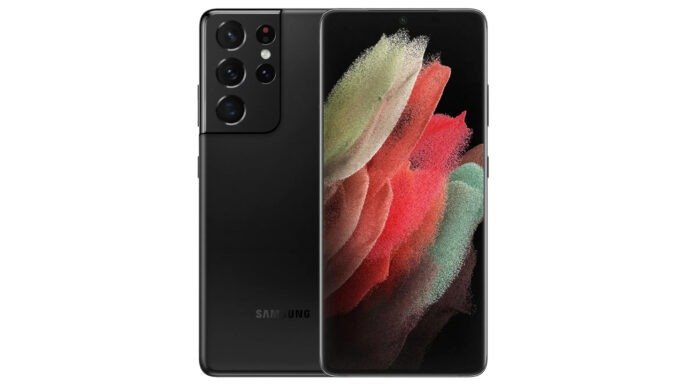Table of Contents
Best smartphone The Top 15 mobile phones in 2022
Our best smartphone list has undergone some major changes over the last year with the introduction of the likes of the Google Pixel 6, iPhone 13, iPhone 13 Pro, OnePlus 9 Pro, Oppo Find X3 Pro, and Samsung Galaxy S21 Ultra.
There are always upcoming new phones too, with the Samsung Galaxy S22, Xiaomi 12, OnePlus 10 Pro, Oppo Find X5, iPhone SE 3 and more likely to appear in the next few months, so expect this list to keep being updated. Plus, we expect to see an iPhone 14 later in 2022.
We test these phones rigorously through our review process, making sure that we check every angle and feature – but most importantly, considering whether they’ve got a decent battery, great screen, strong design and a cracking camera.
Then, perhaps most importantly, we consider the price too. Not everyone can afford (or even wants) a supercar-like handset in their pocket at all times, so we’ve ensured to give you a full ranking.
Best phone 2022: which smartphone is for you?
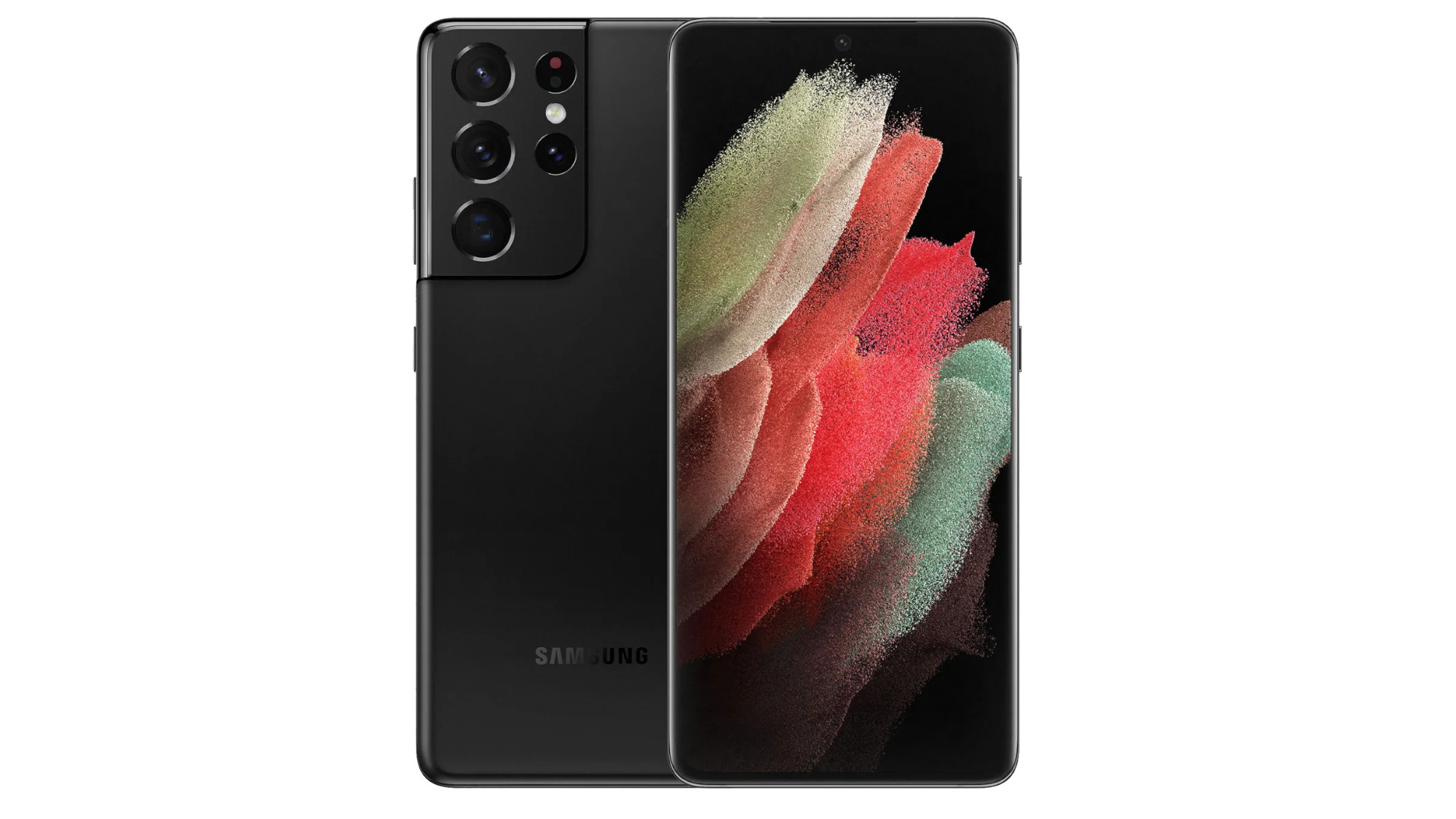
The Samsung Galaxy S21 Ultra is our best smartphone in the world right now, and we think it’s a fantastic choice for you with one of the best cameras, phenomenal power, great battery life, a solid design and a whole host of other great features.
The Galaxy S21 Ultra isn’t a cheap handset, the price is high for this one, but if you’re looking for the ultimate smartphone experience in 2022 you”ll be hard pressed to do better than this latest from Samsung.
It features a top 6.8-inch screen with a 120Hz adaptive refresh rate and a Quad HD resolution. This is one of the best smartphone displays on the market.
The battery life is also solid, and we found it’d often see us through a whole day from a full charge. Note the Galaxy S21 Ultra doesn’t come with a charger in the box though, so you’ll have to use your existing one or buy one separately.
Samsung’s 108MP camera on the Galaxy S21 Ultra is going to be the highlight for many, and the camera doesn’t disappoint on this phone. Like its predecessor, you can take 100x zoom photography, but it’s far improved here over the Galaxy S20 Ultra with two cameras working to do the heavy lifting.
The Samsung Galaxy S21 Ultra won’t be for everyone with its high price, but it’s the ultimate smartphone you can buy right now taking our crown for the best smartphone money can buy. Be sure to read our full review before making your final decision, but if you’re after one of the best overall smartphone experiences we believe you’ll find it here with Samsung’s latest.
Read more: Samsung Galaxy S21 Ultra review
Price comparison: The best Samsung Galaxy S21 Ultra deals
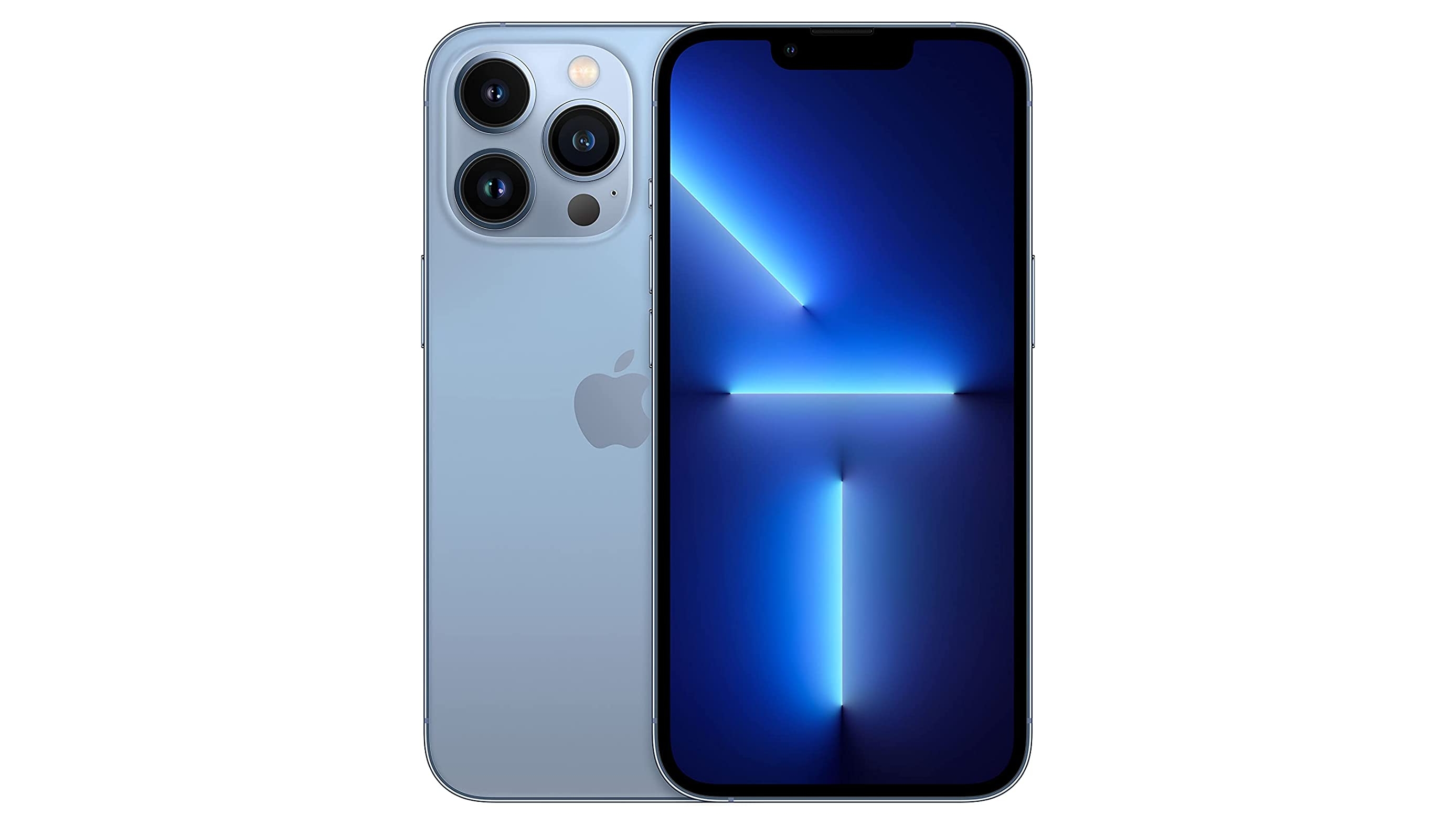
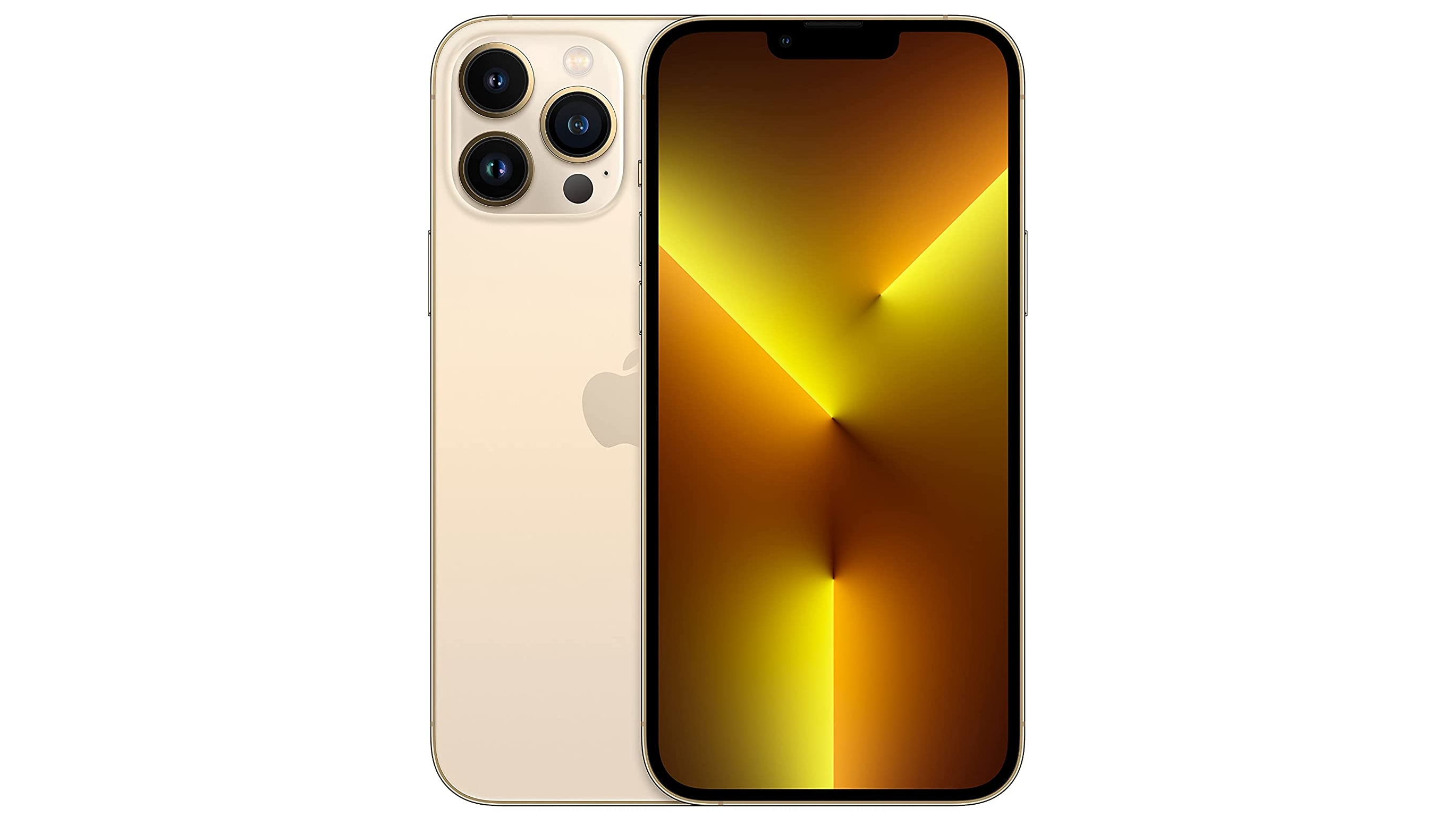
The iPhone 13 Pro and iPhone 13 Pro Max are the best iPhones available at the time of writing, offering more power than ever before, improved cameras, 120Hz refresh rates and surprisingly good battery life.
Whether you choose the 6.1-inch iPhone 13 Pro or 6.7-inch iPhone 13 Pro Max you’re getting a sharp OLED screen with a 120Hz variable refresh rate. The continued presence of the notch is annoying, but it’s slightly smaller this time and easy to ignore, especially once you see the overall quality of the display.
Apple has outdone itself with the battery life on the iPhone 13 Pro Max, which is genuinely great, rather than just being great for an iPhone. The iPhone 13 Pro’s isn’t quite as good, but it’s still decent and an upgrade on the iPhone 12 Pro’s life.
The iPhone 13 Pro range includes the same lens types as last year, but with larger pixels and new modes, including an impressive macro mode, and a slightly less significant Cinematic mode. Between all this and their improved low light performance, these cameras are ace.
While the iPhone 13 Pro and Pro Max are the best iPhones, they’re slightly topped by the Samsung Galaxy S21 Ultra, which has a better design and a more versatile camera, but these phones come very close, and are the obvious choice for iPhone fans. With a higher refresh rate than the iPhone 12 range, a new macro mode and a smaller notch, they aren’t the biggest upgrades but they’re undeniably great.
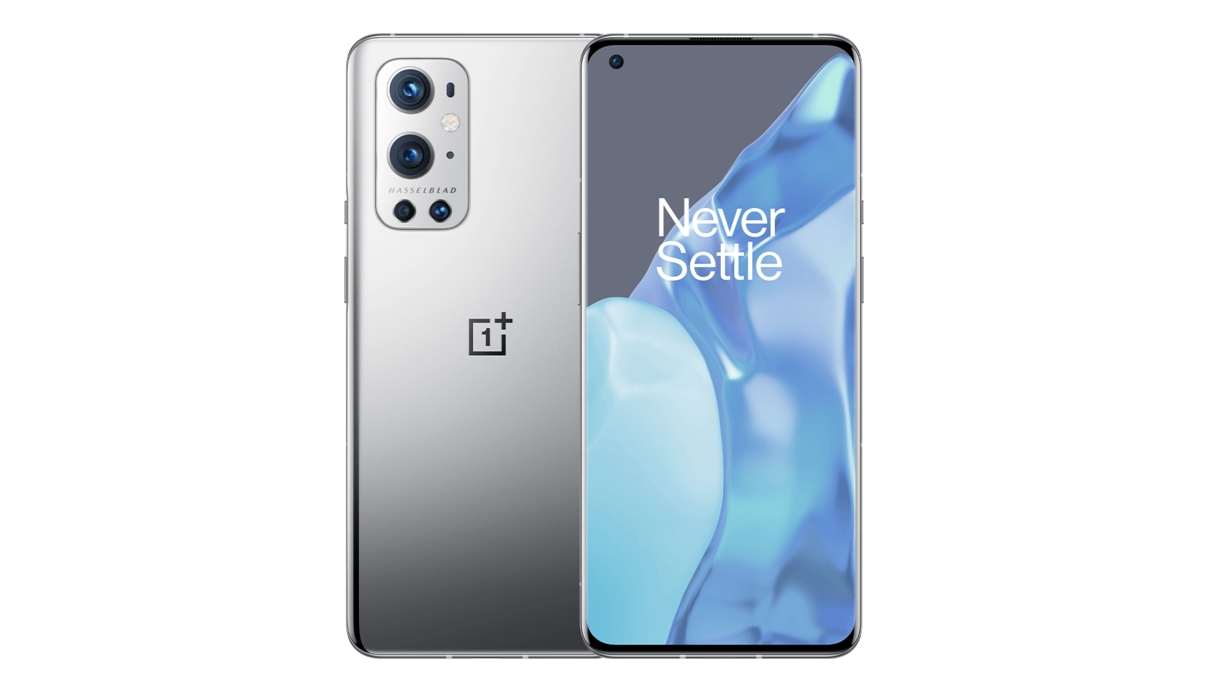
The OnePlus 9 Pro is a top-tier flagship phone and one that improves on the main weakness of previous OnePlus handsets – their cameras. This is a phone that can compete with the other best phones, and some may even prefer its camera to the other phones on this list.
It has a 6.7-inch screen, which will likely impress you with its ‘Fluid Display’ that sets the refresh rate to 120Hz. Not only does it make game look better, but simply scrolling the web looks smoother. You’ll also find nice upscaling and HDR10+ here.
It doesn’t offer the absolute best battery life we’ve seen on a smartphone, but it features a 4,500mAh cell that is set to last you a full day from a single charge. It also has great fast charging and wireless charging features.
Thanks to a new Hasselblad partnership and a ‘freeform’ ultra-wide lens, designed to reduce the distortion at the edge of images, the OnePlus 9 Pro is the best OnePlus camera phone. It isn’t the absolute best camera phone, but it’s a remarkable step up from the company with a great 48MP main camera alongside an 8MP telephoto and 50MP ultrawide.
OnePlus may have focused its attention on the cameras for the OnePlus 9 Pro, but this is an overall incredible smartphone offering top-end power, a great display and most features you’d expect from any other phone you’ll find on this list. Battery life isn’t the absolute best, and it’s remarkably expensive considering OnePlus’ history in the smartphone market but it has earned its place this high on our best smartphone list because it’s the overall package.
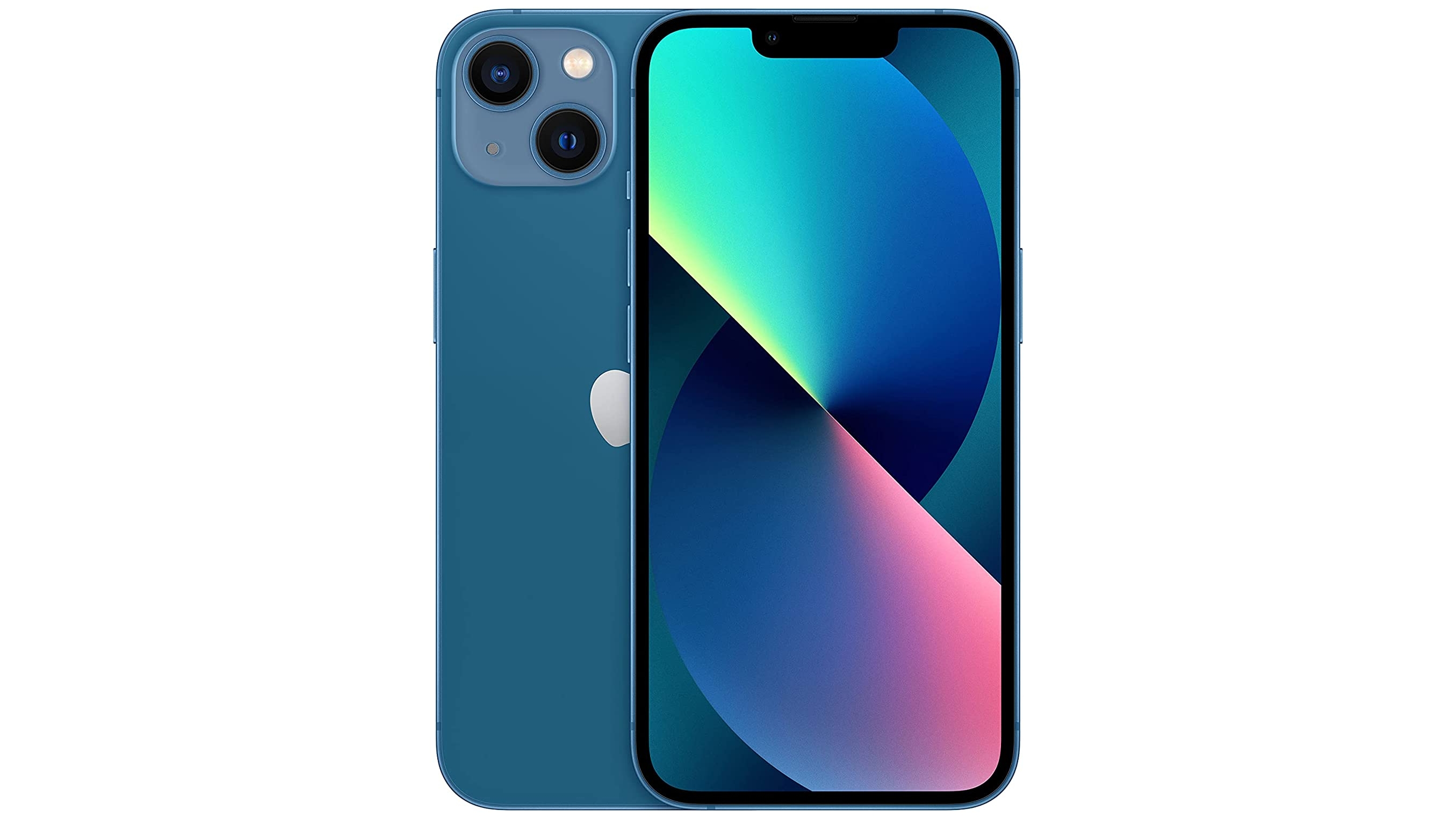
The iPhone 13 isn’t as big an upgrade as the iPhone 13 Pro, as it lacks a 120Hz refresh rate, but with oodles of power and good battery life it’s a strong choice if you don’t have a fortune to spend.
With its 6.1-inch 1170 x 2532 OLED display, the iPhone 13 has a bright and clear screen. It doesn’t have a 120Hz refresh rate, but it does at least have a slightly smaller notch than the iPhone 12.
In our tests the iPhone 13 reliably lasted through a day of use, but not much more. That puts it in fairly average territory, yet it’s still an improvement on many previous iPhones here.
The iPhone 13 lacks a telephoto camera, but its main and ultra-wide perform well, with the former having larger pixels than the iPhone 12’s. With improved image stabilization too, plus some new shooting modes and features, there’s a lot to play with here, and a lot to like.
The iPhone 13 Pro / Pro Max and the Samsung Galaxy S21 range have the edge over the iPhone 13 when it comes to specs and features, but this standard iPhone model comes close to matching them, especially when it comes to battery life. And actually it probably has slightly more power than its Android rivals.
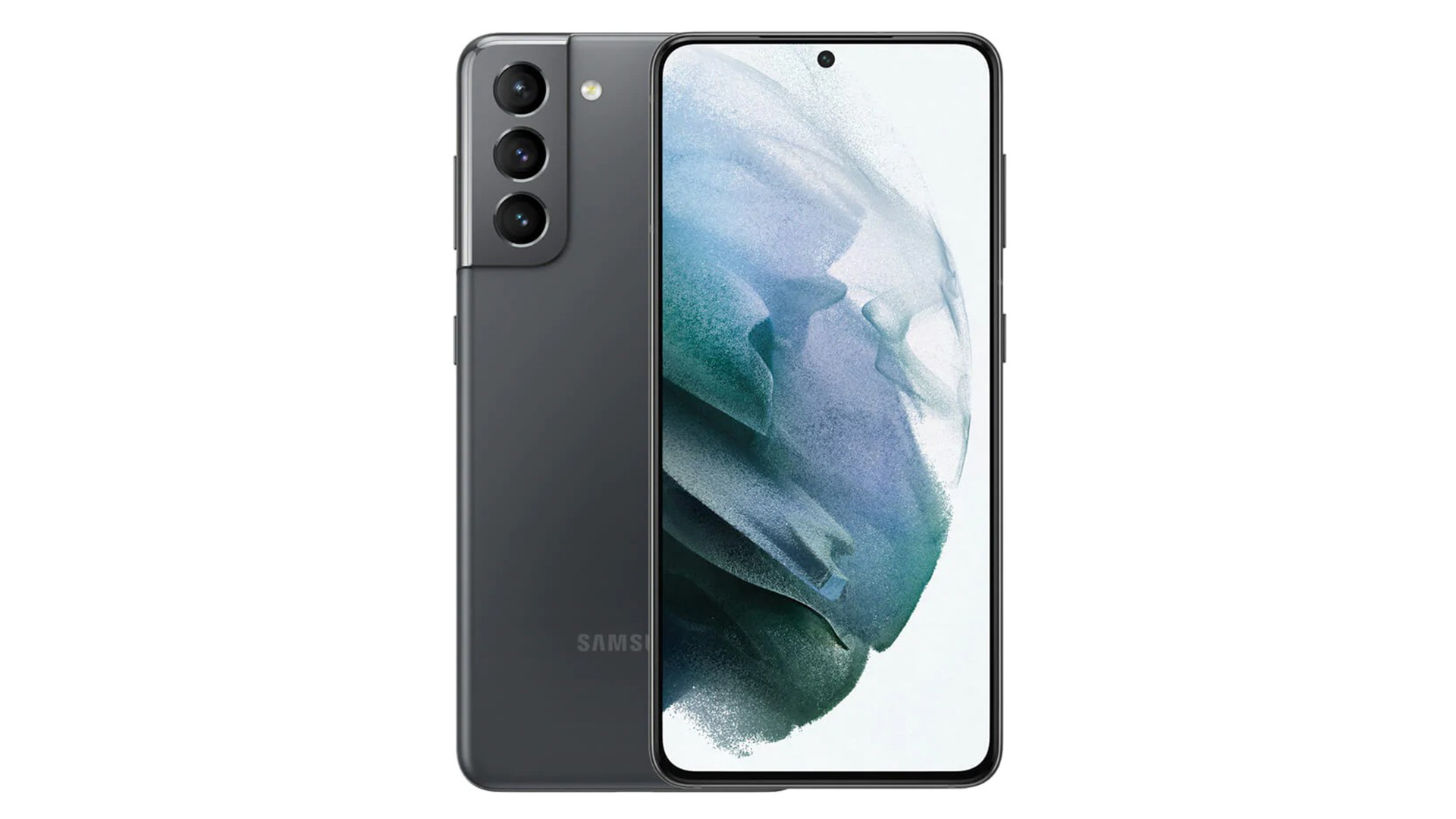
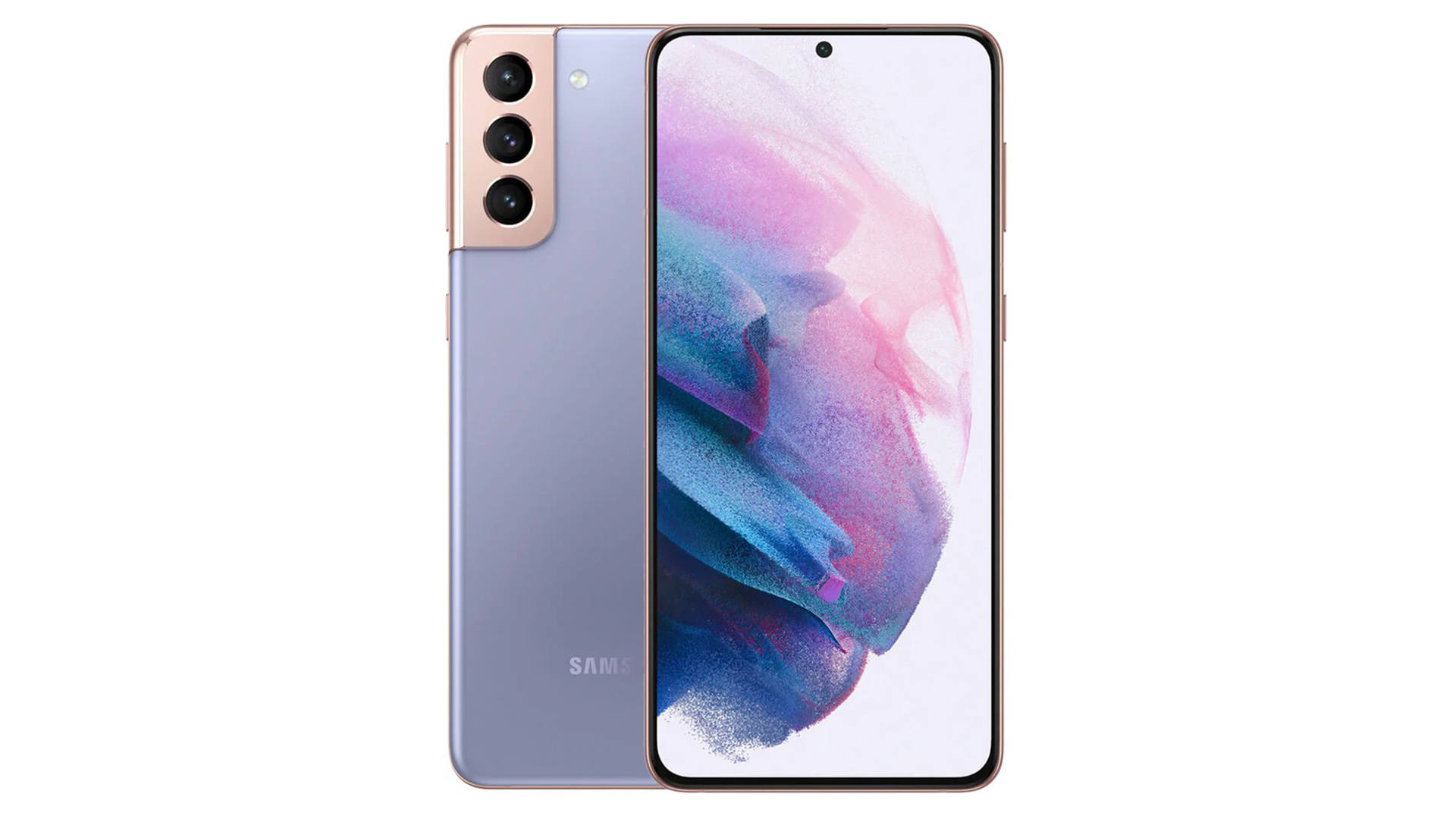
The Samsung Galaxy S21 and Samsung Galaxy S21 Plus aren’t the height of spec and prowess as its predecessors used to be – the Samsung Galaxy S20 used to sit at the top of this list – and instead Samsung’s Ultra handset is taking the limelight.
The Samsung Galaxy S21 and its bigger sibling are trying to do something differently, and both are remarkably cheaper than the Galaxy S20 range was at launch. Both still offer a phenomenal smartphone experience, and with a lower price it’ll be a top choice for many.
Much has been said about Samsung’s switch to Full HD for the Galaxy S21, but in our testing we didn’t notice the knock down in resolution much unless we were testing the phone side by side with a QHD display. With a 120Hz refresh rate and great brightness, the Galaxy S21’s screen will satisfy many and if you’re after a larger option you’ll find the Plus is built for you with its 6.7-inch screen.
The battery life on the Samsung Galaxy S21 will last you a full day from a single charge, and its 4,000mAh cell means you’ll get a lot of usage out of the handset without having to recharge the phone. We found the S21 Plus offers the longer battery life though with its 4,800mAh cell.
The Galaxy S21’s camera is much the same as the Galaxy S20, but a few software tweaks have been included from Samsung that make it just that touch better. Overall, this isn’t as phenomenal as the Galaxy S21 Ultra but for most just wanting to shoot the odd snap, this will suit you perfectly.
The Samsung Galaxy S21 will be the perfect smartphone for many with its great mix of solid spec, a great design and the fact it’s cheaper than the Galaxy S21 Ultra as well as its predecessors. If you own the Samsung Galaxy S20 we wouldn’t recommend buying this, but for others this will be the perfect smartphone. If you need a slightly longer lasting battery and a larger display, also consider the Samsung Galaxy S21 Plus (even though its specs are remarkably similar).
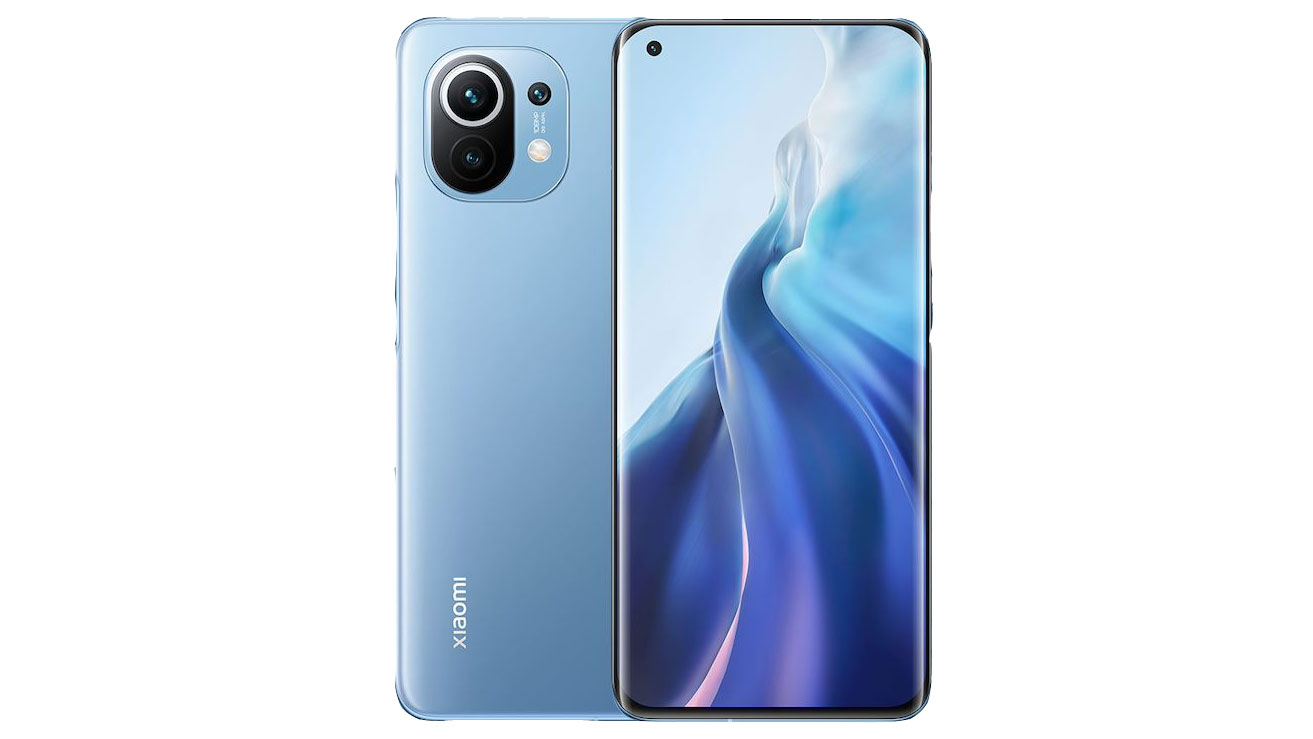
The Xiaomi Mi 11 is the culmination of years of progress from the company, and it’s the highest we’ve ever seen a smartphone from the manufacturer sit in this list of the top phones.
You’ll get everything from a top-end processor, a phenomenal display, a power rear camera and much more in the Xiaomi Mi 11.
There’s a 6.81-inch display on the Xiaomi Mi 11, and it has a top resolution of 1440 x 3200. This AMOLED panel is one of our favorites on smartphones right now, and it features a 120Hz refresh rate meaning gaming and more is super smooth.
The camera on the Xiaomi Mi 11 sounds great on paper, and while it may not as powerful as we had expected in real life it’s a versatile shooter with a 108MP f/1.9 main lens and a 13MP f/2.4 ultra-wide backing it up. There’s no telephoto shooter here, though.
The battery life is one of the weaker areas for the Mi 11, but it’s not atrocious and we found the phone’s 4,600mAh cell would last a full day of normal usage. If you’re expecting to use your phone considerably more, you may want to look elsewhere on this list.
The Xiaomi Mi 11 is a great alternative to the normal names you’d expect in this ranking of the very best smartphones. Battery life isn’t the best, and there’s no telephoto camera but if you’re okay with those concessions you may find the Mi 11 is built for you.
Read more: Xiaomi Mi 11 review
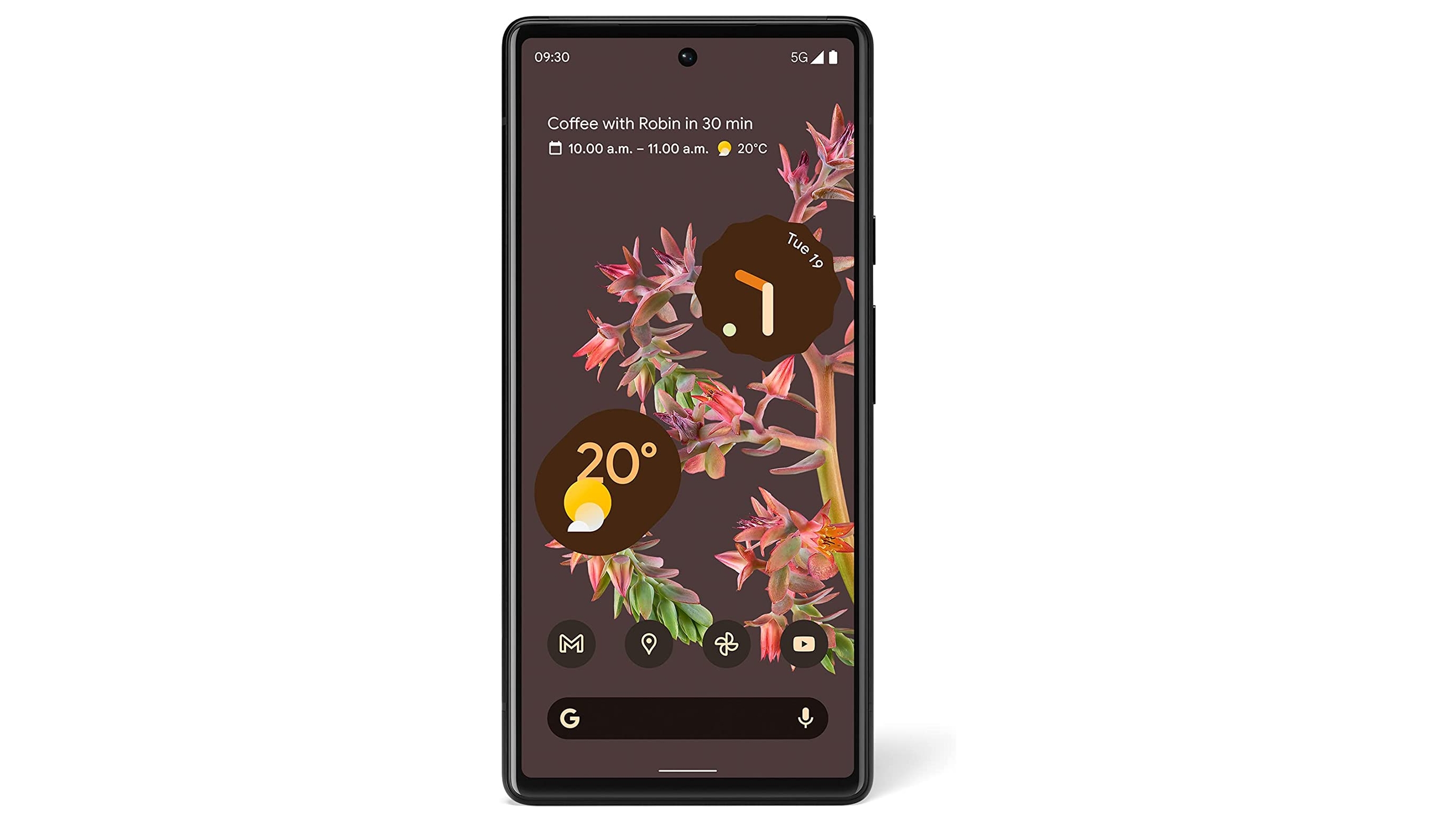
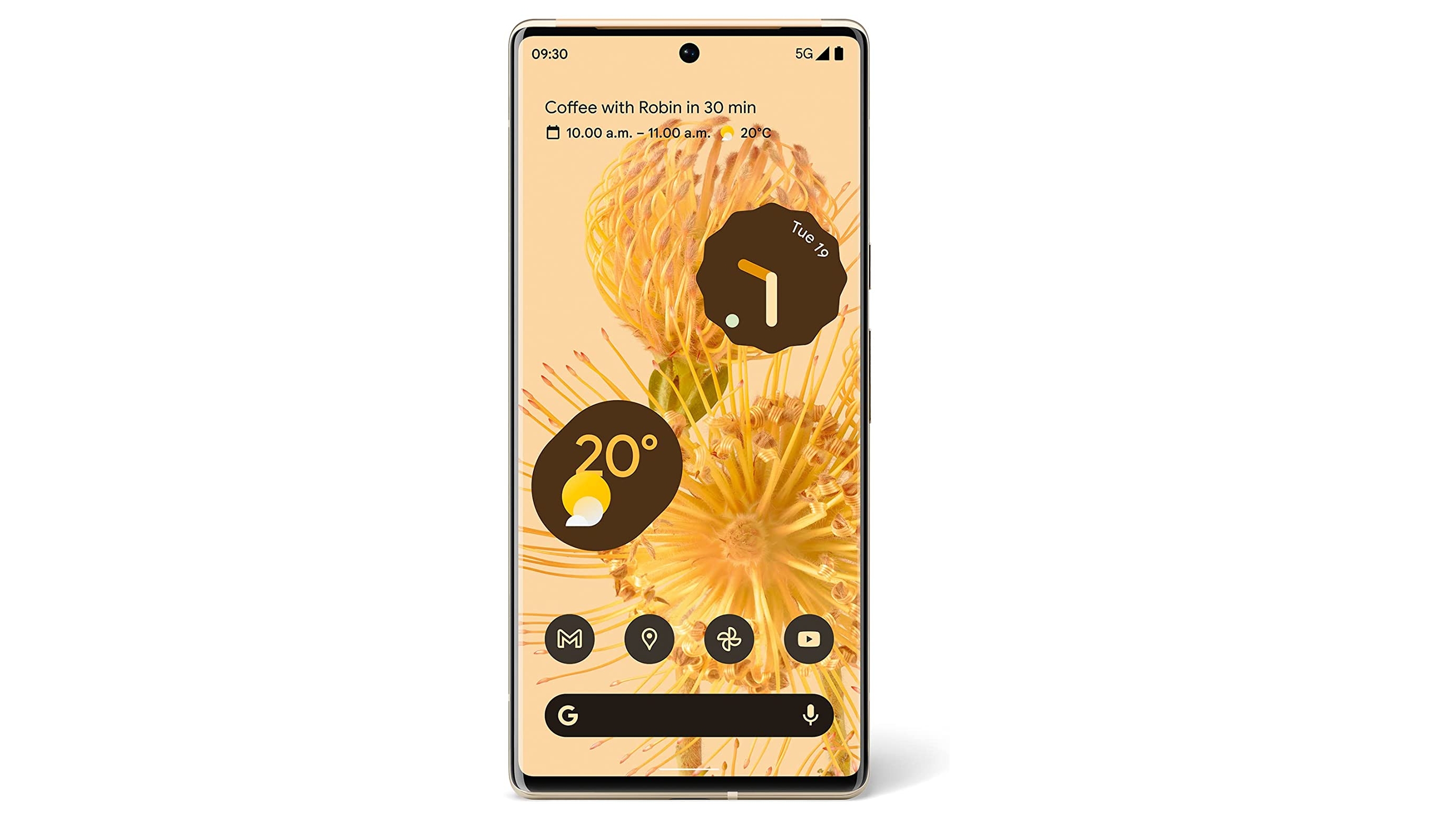
The Google Pixel 6 and Pixel 6 Pro are the most exciting phones Google has launched in a long time, or arguably ever.
They both have a design that’s unlike any other phones, with a large camera visor and a three-tone color scheme, and they’re just as interesting on the inside, with a Google Tensor chipset that’s been designed and built specifically for these handsets.
Both also excel for taking photos, with a 50MP main and 12MP ultra-wide snapper – along with a 48MP telephoto camera offering 4x optical zoom in the Pixel 6 Pro’s case.
And speaking of the Pixel 6 Pro, this is a true flagship, with a 6.7-inch QHD+ 120Hz screen and 12GB of RAM. The standard Pixel 6 has slightly lesser specs, but also comes in at temptingly affordable price, and both phones run Android 12, with Google’s vision of the software intact.
So they’re a great showcase for Android, but middling battery lives and a chipset that’s not quite a match for rivals in benchmarks stops them ranking higher on this list.
Read more: Google Pixel 6 review | Google Pixel 6 Pro review
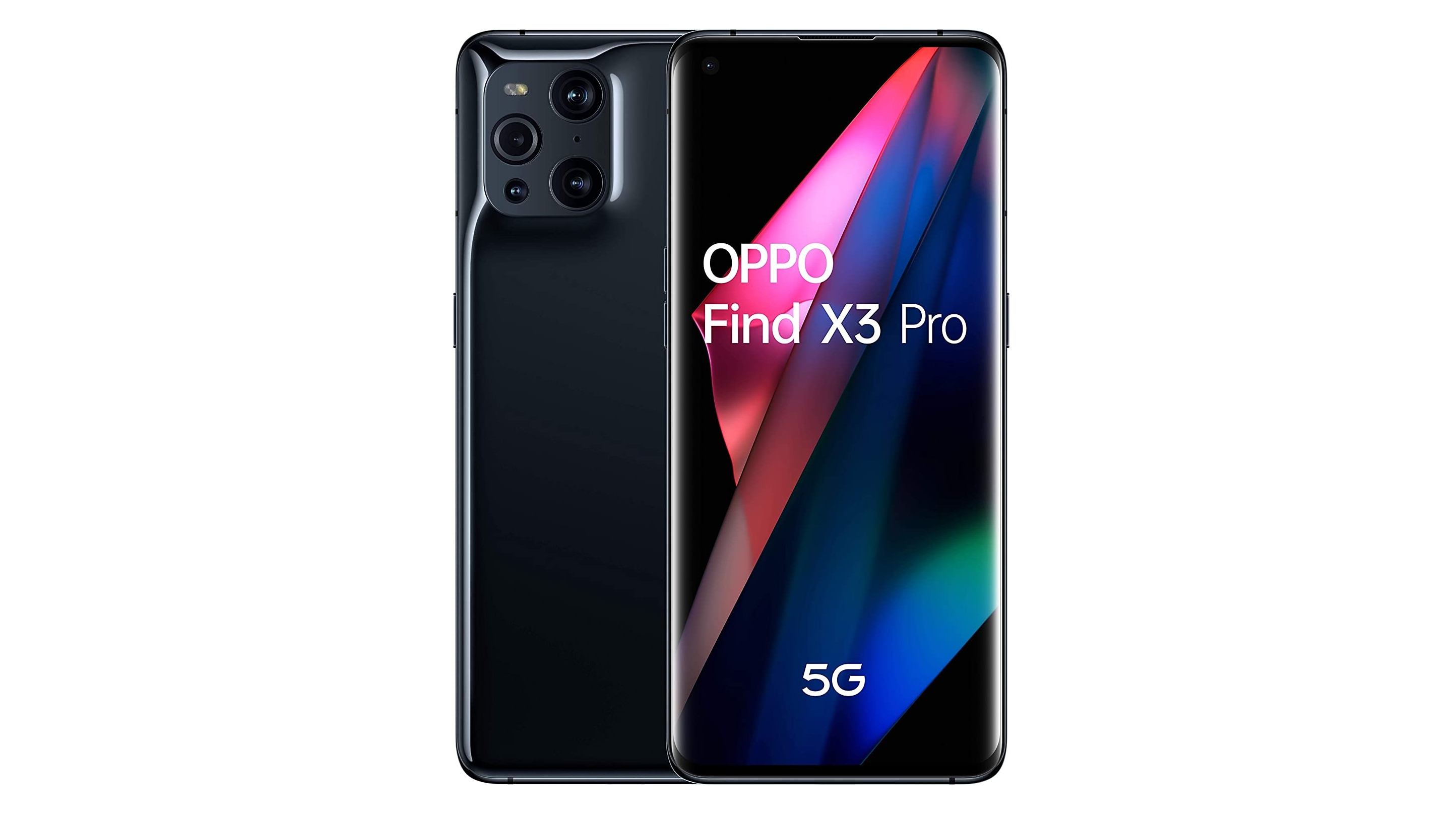
The Oppo Find X3 Pro is a follow-up to one of 2020’s best smartphones – that’s unsurprisingly the Oppo Find X2 Pro – and this handset is the most accomplished smartphone from the manufacturer so far.
You’ll find a top display, processor, camera and much more on the Oppo Find X3 Pro that justifies its high price tag.
The 6.7-inch display on this phone is one of the very best on the market right now. The resolution is fantastic, it’s punchy and you’ll enjoy using the screen on this device if you’re after a large phone.
The Oppo Find X3 Pro is one of the better battery life smartphones out there, and we found in our testing that it’d often last a full day of medium to high use. If you do need to recharge often, it features some top-end fast-charging to make up for it.
There is some fantastic spec here making it one of the very best camera phones you can buy right now. This is where the Oppo Find X3 Pro shines through, and we found the camera was able to take colorful images with plenty of detail.
This isn’t the cheap handset you may expect from Oppo. It’s a top-end phone that’s capable of fighting against the big guns of Apple, Samsung and OnePlus that surround it. If you’re after something different, be sure to read our review below.
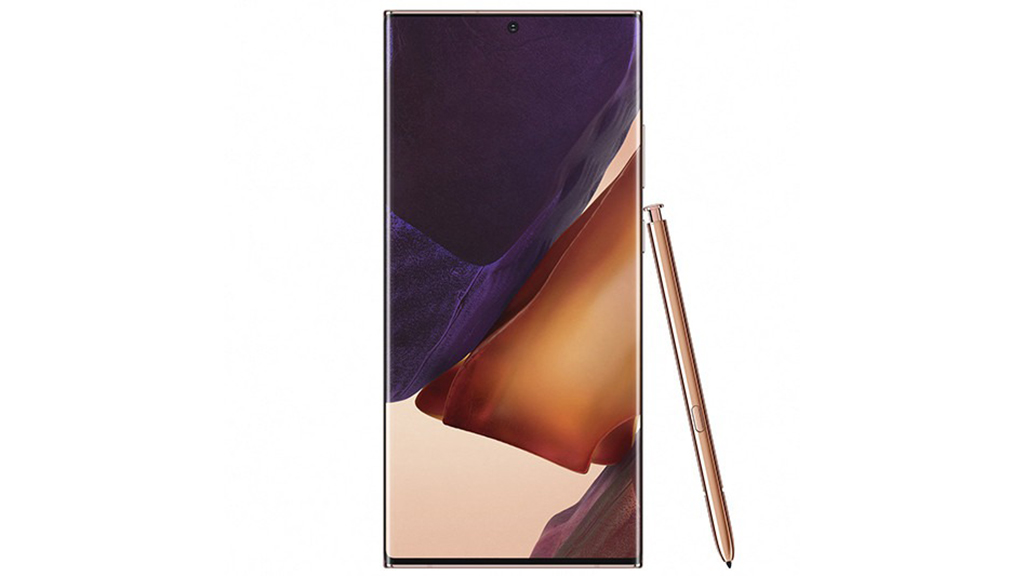
Samsung’s latest Note entry is the Samsung Galaxy Note 20 Ultra, with advanced features, a great-looking screen, and special features for the S Pen stylus which comes included in the phone, that give you added versatile ways to use your device.
Sure it’s expensive, and pretty huge, and doesn’t actually have all the bells and whistles of the Galaxy S20 Ultra or Galaxy S21 Ultra. But those weaknesses are made up for with plenty of advantages.
The Galaxy Note 20 Ultra has one of the best display’s on any smartphone, with a 120Hz refresh rate (at FullHD+ resolution) and the option of QHD+ resolution (at a 60Hz refresh rate) – plus at 6.9 inches there’s plenty of space for movies, games and productivity apps.
The Samsung Galaxy Note 20 Ultra camera is… impressive. With 0.5x ultrawide, 1x regular, 5x optical and 50x digital zoom levels, you can get closer to subjects and still get stunning shots.
If the Note 20 Ultra has a slight weak point, it’s battery. In the most of the world (basically outside North America) the handset comes with Samsung’s Exynos 990 chipset which isn’t quite as power efficient – if you push the handset, you’ll need to recharge before the day is out.
This is a real top-end phone with top specs in every sector, so if your budget (and hand) can stretch for it, the Samsung Galaxy Note 20 Ultra is the power and productivity user’s phone of choice.
Read more: Samsung Galaxy Note 20 Ultra review
Price comparison: The best Galaxy Note 20 Ultra deals
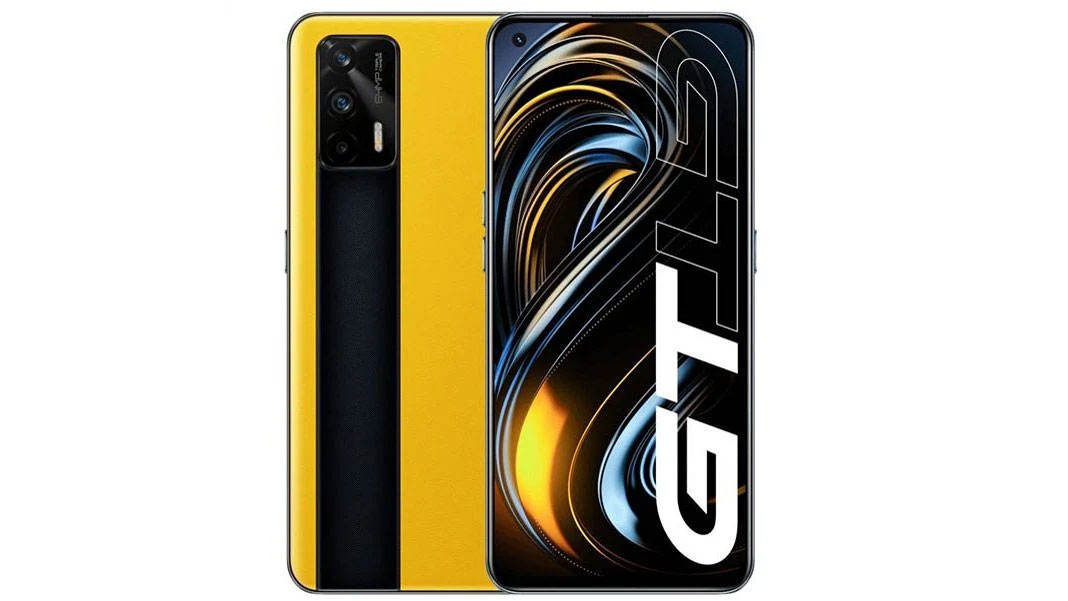
Realme hasn’t ever featured on our ranking of the best smartphones, until now. This new handset from the company is its best yet, and it features top-end specs that can compete with the very best phones but with an affordable price.
The Realme GT can be difficult to find in the UK, but if you’ve got the determination you’ll likely enjoy what this can offer for an affordable price.
The 6.43-inch Super AMOLED display impressed us on the Realme GT, and while it won’t match the absolute top-tier of smartphone screen technology it’s a great choice for watching video and more.
Expect a solid day of battery life from the Realme GT, and its recharging technology is particularly impressive. If your phone is empty, you can recharge it to full in just over 30 minutes.
The camera is one of the weaker elements of the Realme GT, but bear in mind that this is a cheaper phone and we think you’ll be okay with what this handset is capable of. It features a 64MP main camera, 8MP ultra-wide and a 2MP macro camera.
This is one of the cheapest entries in our ranking of the very best smartphones, and if you’re after something a little different to the rest of the phone market it’s worth considering. Its bold design and affordable price are two key differentiators that make the Realme GT shine.
Read more: Realme GT review
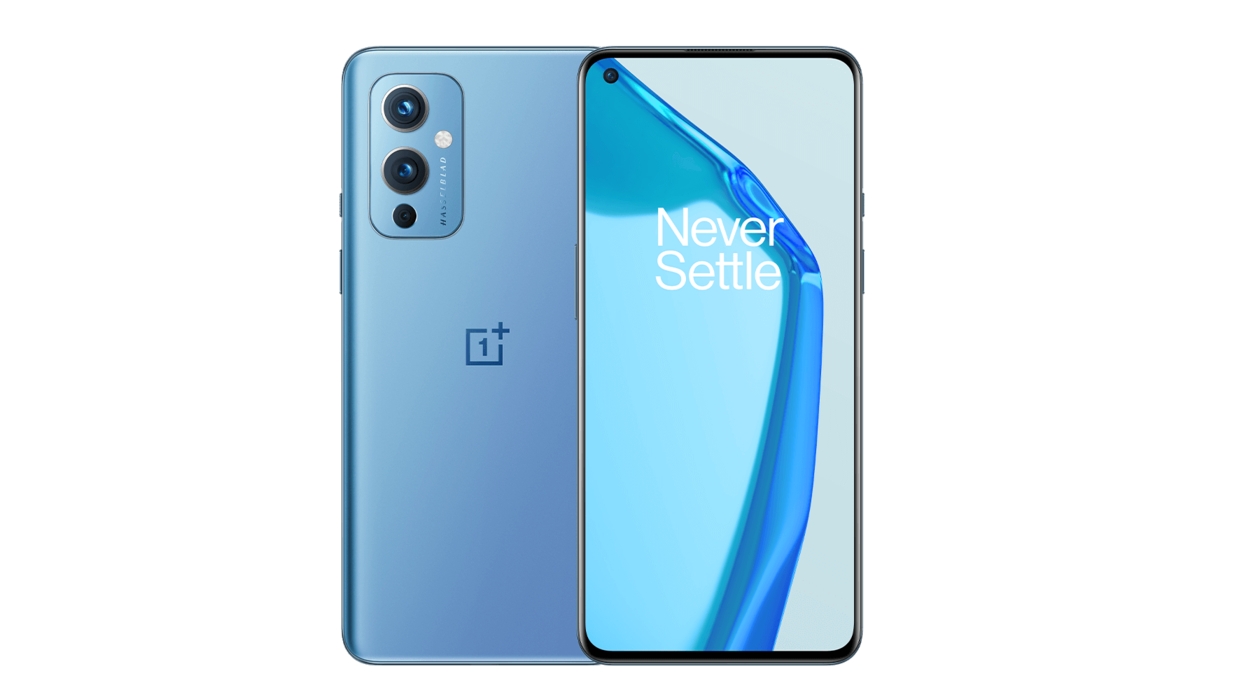
The OnePlus 9 is a lesser phone than the OnePlus 9 Pro in a number of ways, but it’s also quite a bit cheaper, and arguably keeps the soul of its pricier sibling intact.
For one thing it retains the Hasselblad branding (and the camera expertise that goes with that), as well as having the same camera hardware as the OnePlus 9 Pro – minus that phone’s telephoto snapper.
At 1080 x 2400 pixels, the OnePlus 9 doesn’t have the sharpest screen, but it’s sharp enough, and its 120Hz refresh rate coupled with AMOLED tech makes it one of the best displays you’ll get for this sort of money. It’s also quite big at 6.55 inches.
There’s a big 4,500mAh battery in the OnePlus 9, which comfortably lasts a day and charges very quickly, as it supports 65W charging. Plus, there’s wireless charging in here too if you wanted to opt for a charging pad instead.
This is the big upgrade for the OnePlus 9, and while it doesn’t reach the heights of the OnePlus 9 Pro is makes some fantastic true-to-life imagery that you won’t be embarrassed to share with your friends. It features a 48MP wide camera, 50MP ultra-wide and 2MP depth sensor.
The OnePlus 9 is a phone that almost has it all. From its great screen to its high-end chipset, capable cameras, long-lasting battery, and good software. Much like the phones before it, this isn’t the absolute best choice but it’s very good for the price.
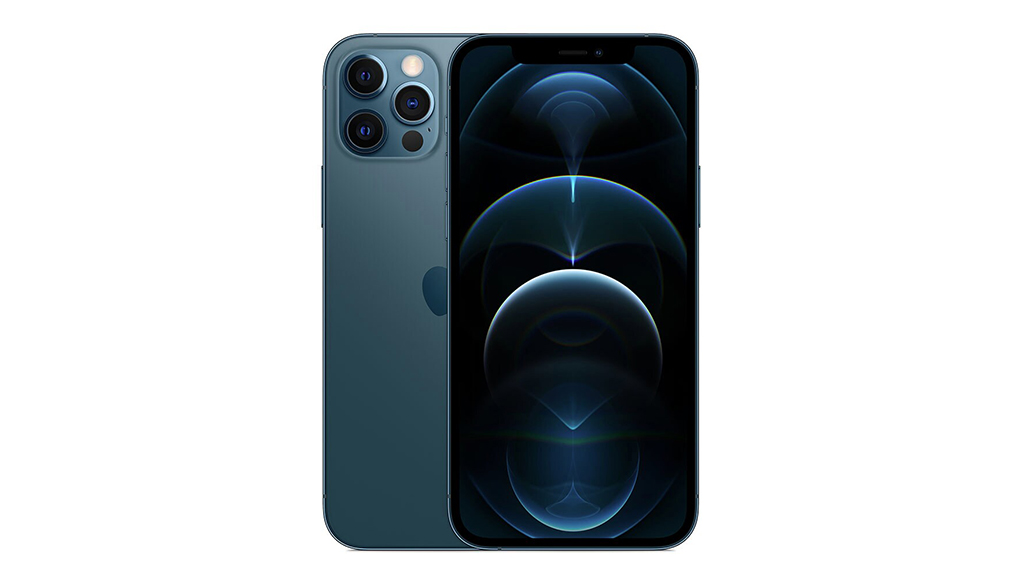
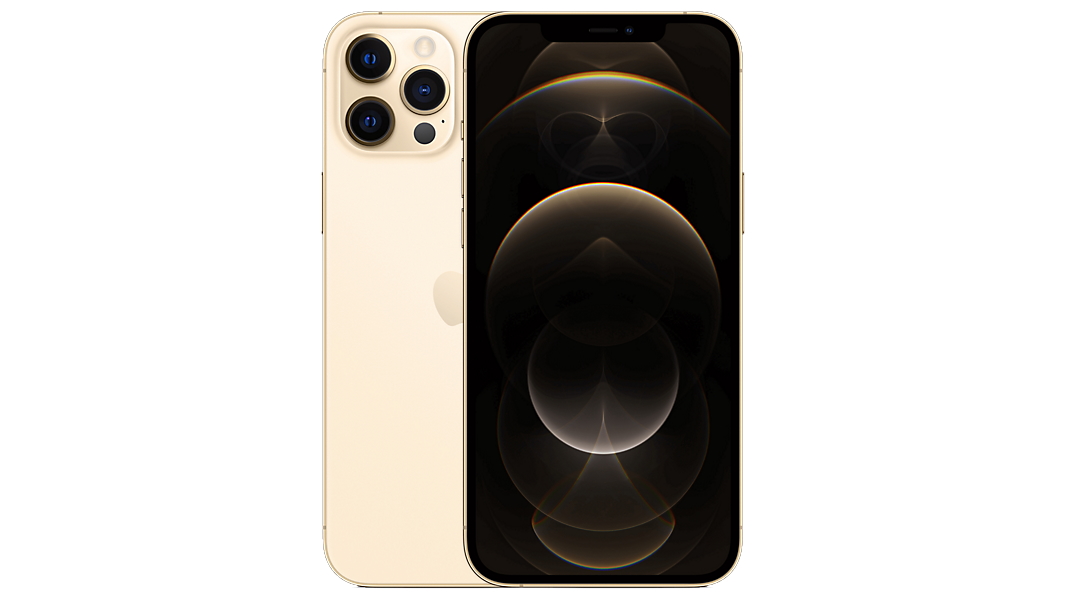
The iPhone 12 Pro takes everything great about the iPhone 12 and elevates it. Then there’s the iPhone 12 Pro Max that offers better battery life and a slightly more powerful camera as well as a huge screen. The extra for the iPhone 12 Pro may not be worth the notable price hike, but this phone pairing was undeniably the best Apple had released until the iPhone 13 range arrived.
Apple’s 6.1-inch OLED screen on the iPhone 12 Pro really grabbed our attention – it’s fantastic for video streaming and gaming, even if it’s set to 60Hz while other phones are pushing 90Hz and even 120Hz refresh rates. Yes, the notch cut out at the top is still here, but we find it to be easy to ignore after a while, even as other phones do just fine with punch-holes in displays.
This is some of the best battery life we’ve ever experienced on an iPhone, with further optimizations within iOS and a larger cell inside the phone itself. It’s still not game-changing, but it’s better than other Apple handsets and the iPhone 12 Pro Max is particularly notable.
The triple camera setup on the iPhone 12 Pro is fantastic. While the three rear cameras aren’t too different than the ones in the iPhone 11 Pro, save for the added LiDAR sensor that supposedly enables portrait mode-style shots even in Night Mode. The iPhone 12 Pro Max is the one to go for though if you want the very best camera on an Apple device.
The iPhone 12 Pro and iPhone 12 Pro Max are very powerful, and they’re also the very pricey. While the same amount of money could buy you a Samsung phone with a bigger screen and more storage at the base level, most iOS users don’t want to deal with Android. Instead, they can look forward to a few key upgrades over the iPhone 11 Pro, like 5G and MagSafe for clipping on accessories (as well as wireless chargers) easily and securely.
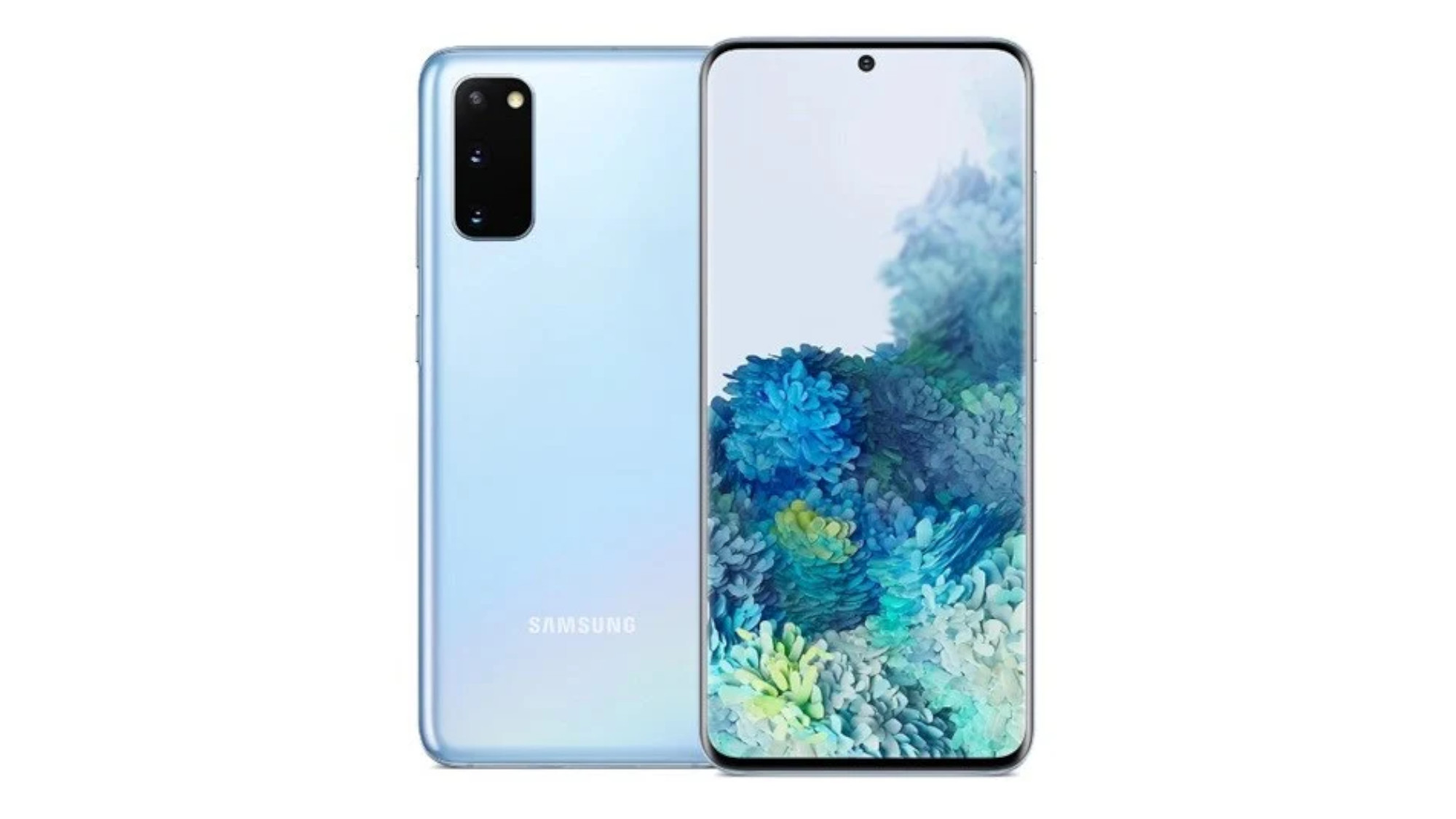
The Samsung Galaxy S20 and Galaxy S20 Plus were previously the best smartphones money could buy, but we’ve now pushed these further down our list since the introduction of the Galaxy S21 and Galaxy S21 Ultra.
These two handsets remain in our best of list because they’re still some fantastic choices for your next Android phone, and the price is likely to continue dropping in the next few months.
Both these devices have phone screens that are a cut above the rest, and each is capable of a 120Hz refresh rate that will allow for far smoother scrolling and gameplay on your phone’s screen.
The battery life on the Galaxy S20 and Galaxy S20 Plus isn’t the best we’ve ever seen on a smartphone, but larger batteries than the S10 series allow these devices to last longer and it’ll be enough for your day. Both devices come with wireless charging, and there’s also a Reverse Power Share feature that allows you to top up your friend’s phone too.
Samsung has improved the camera suite on the Galaxy S20 devices compared to the Galaxy S10. It may not look far better on paper, but larger pixels and improved software adds to the flagship experience.
The S20 and S20 Plus are packed full of great features, and while they may no longer be the very best that Samsung has to offer these are still a satisfying smartphone experience. If we had to pick one, we’d go for the bigger screen, larger battery slightly improved rear camera of the Galaxy S20 Plus, but both phones deserve this place in our ranking.
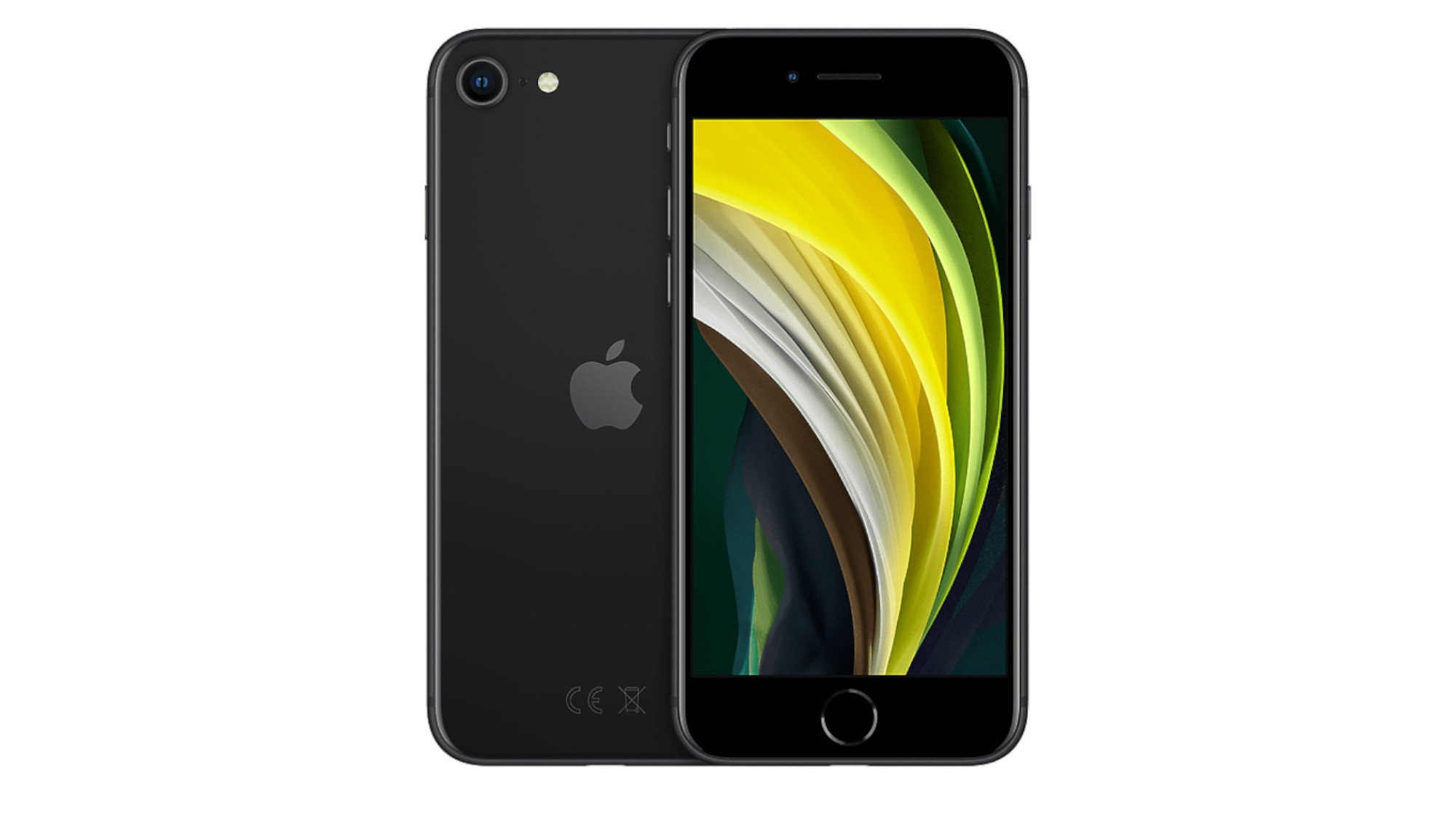
The iPhone SE 2020 is the sequel to the one-hand-friendly iPhone from 2016, and it takes the power and specs we loved from the iPhone 11 series and crams them into the design of the iPhone 7 and iPhone 8.
This new iPhone SE has a 4.7-inch screen borrowed from the iPhone 7 and iPhone 8, so it’s bigger than the original iPhone SE, but remains one-hand-friendly. That’s become important for people who have been demanding a smaller phone. This is the one to get, even if the resolution and bezel won’t wow anyone.
As long as you aren’t a power user (who would likely opt for the iPhone 11 series anyway), then you’ll be OK with what Apple offers in terms of battery life. It’s not going to last you any longer than a day, though, with generally the same amount of power as we saw on the iPhone 8, which had a 1,821mAh battery capacity.
For the money, the iPhone SE 2020 takes perfectly fine photos in good light. You won’t notice much of a difference outside of it occasionally failing to nail perfect exposure levels and depth of field outdoors during the daytime. Dim the lights, however, and you’ll notice one glaring omission: the night mode that’s on the more powerful iPhones. That requires an upgrade to at least the iPhone 11.
This isn’t Apple’s most powerful iPhone, but it’s the best value for people who want to stick with iOS 13 without paying through the nose. Its screen technology won’t wow you like an iPhone 12 Pro, and there’s just one camera on the back, but starting £419 means this is hard to be if you’re on a budget and don’t want to switch to Android.
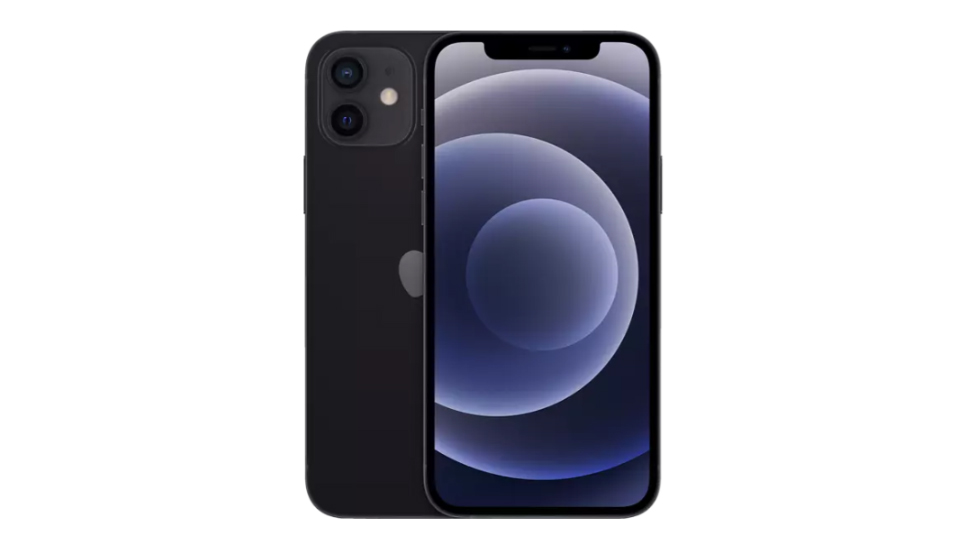
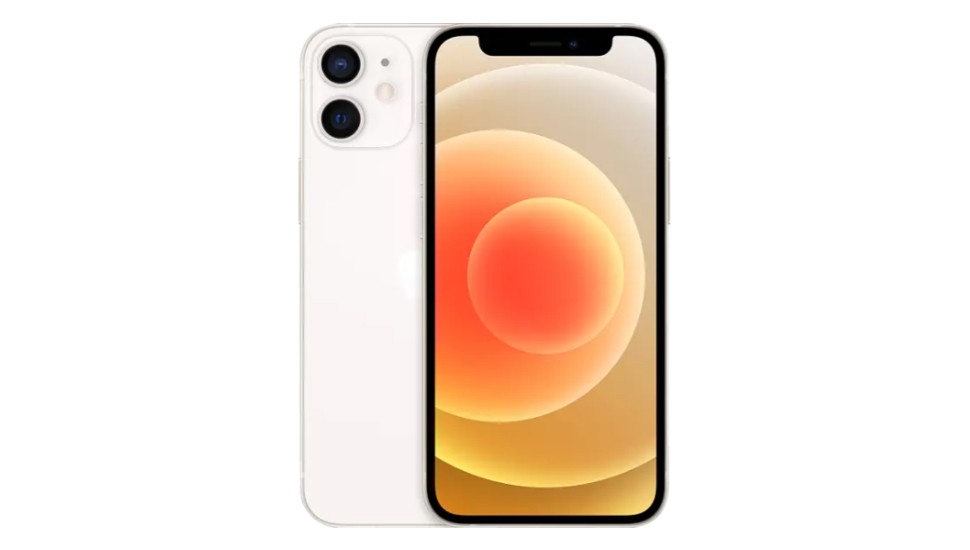
The iPhone 12 or iPhone 12 mini aren’t technically superior to the iPhone 12 Pro series, but both are priced so well (for iPhones) and each has most of the key features you’ll want from an Apple device. The iPhone 12 takes the place of the iPhone 11 with the same 6.1-inch screen, but a few new features like MagSafe. Then there’s the new iPhone 12 mini, which is similar but comes in a smaller package.
The 6.1-inch screen is the same size as the display on the iPhone 12 Pro, fitting in between the iPhone 12 mini and 12 Pro Max sizes, making it an appealing choice if you want a large screen, but not the biggest. If you want the smaller version, it has a 5.4-inch screen. For the first year, the more ‘affordable’ flagship also gets an OLED screen, which is a big perk. It’s a brilliant-looking phone, if you don’t mind the notch.
These iPhones can deliver all-day battery life, and it’s slightly better than the iPhone 11 battery, which we thought was stellar in 2019. What are you going to be missing? The pricier iPhone 12 Pro series does last a bit longer, but given no phones come with faster chargers this year, you’ll have to shell out for Apple’s fast charger unit just like the Pro owners.
This is close to the best iPhone camera, with both a 12MP main camera and a 12MP ultra-wide camera to cram more into the frame. It’s missing the triple-lens camera on the Pro models, which adds in a telephoto lens, but you’re getting the two essential cameras from that pairing, and it includes a long exposure night mode that will automatically brighten up dark photos.
It’s not as good of a value as Samsung’s top-ranked handset, but the iPhone 12 is a great iPhone for some people simply because it costs significantly less than much of the competition. And, unlike the iPhone SE 2020, which we also praise for being good value, you’re getting most of the features found on the Pro-level handsets like the camera’s stunning Night Mode.
Read more: iPhone 12 mini review | iPhone 12 review
Price comparison: The best iPhone 12 mini deals
The best iPhone 12 deals
You’re at the end of our best smartphone guide, but that doesn’t mean we can’t help you still – if you’re stuck on which model is for you, we’ve got a tool that can compare all the phones together and you can decide which one suits you best based on the cost.

